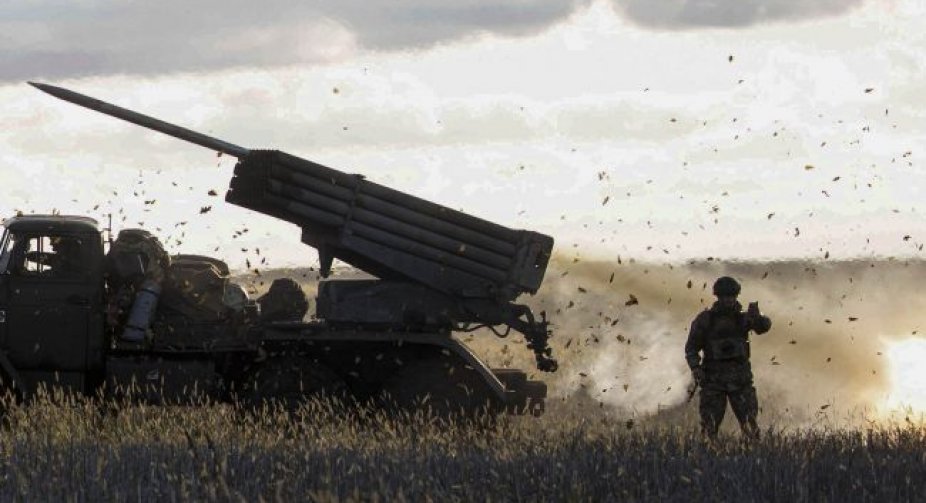Russian troops are preparing for a possible Ukrainian counteroffensive in the Zaporizhzhya region, while heavy street fighting continues in Bakhmut.
This was reported by the Institute for the Study of War (ISW).
On March 24, Russian troops carried out limited attacks along the Kupyansk-Svatov-Kreminna line. The Ukrainian General Staff reported that Russian troops launched unsuccessful ground attacks near Hryanikyvka (17 km northeast of Kupyansk), Belogorivka (13 km south of Kreminnaya) and Serebryansk Forest. (10 km south of Kreminnaya).
A well-known Russian military blogger stated that positional battles continue in the Kupyansk region, but the situation has not changed. He also claimed that Russian troops had advanced slightly to the northwest of Kreminnaya
Russian forces continued ground attacks in the Bakhmut area and achieved victories in and around the city as of March 24. Geolocation footage released on March 24 shows that Russian troops have advanced to the T0504 Kostyantynivka-Chasiv Yar-Bakhmut road south of Ivanovsky, about 7 km southwest of Bakhmut.
Geolocation footage released on March 24 further confirms that Russian troops have advanced west of Zalizyanskyi (11 km northwest of Bakhmut) and within northern Bakhmut itself. On March 24, the spokesman for the Eastern Group of Forces of Ukraine, Colonel Serhiy Cherevaty, noted that the Russian Airborne Forces and other unspecified conventional Russian forces were reinforcing the Wagner Group around Bakhmut, confirming ISW's assessment that Russian conventional forces were likely to be increasingly pushed out operations of "Wagner" in this area.
Cherevaty reported that 32 combat clashes took place in the Bakhmut area over the past day. Russian military bloggers claimed that Russian forces were continuing to fight northwest of Bakhmut in the area of Orichovo-Vasylivka and Bohdanivka and that Russian forces were closing in on Ivanovsky west of Bakhmut.
Several Russian "military personnel" also claimed that Wagner units were moving through the AZOM plant in northern Bakhmut and otherwise advancing in urban areas of the city. Ukrainian forces also appear to have retaken a section of the E40 Bakhmut-Slovyansk highway north of Bakhmut, as evidenced by geolocation footage released on March 24.
The General Staff of Ukraine reported that Ukrainian troops repelled Russian attacks on Bakhmut itself, northwest of Bakhmut in the area of Orihovo-Vasylivka (11 km to the northwest) and Bohdanivka (6 km to the northwest); to the west of Bakhmut near Ivanivskoye (5 km to the west); and to the southwest of Bakhmut near Stupochky (11 km to the southwest) and Predtechine (14 km to the southwest).
On March 24, Russian troops continued ground attacks in the area of the city of Avdiyivka-Donetsk. The Ukrainian General Staff reported that Russian troops were conducting an unsuccessful offensive on Avdiyivka itself; in the Avdiivka district near Keramik (12 km north of Avdiivka), Stepovoy (7 km northwest of Avdiivka), Severovsky (5 km west of Avdiivka), Novokalynovy (12 km north of Avdiivka), Novobakhmutivka (12 km on northwest of Avdiivka); on the northwestern outskirts of the city of Donetsk near the city of Pervomaiske; on the southwestern outskirts of Donetsk in the Maryinka, Pobyeda and Novomykhailivka districts.
On March 24, Russian forces did not conduct any confirmed ground attacks in the western part of Donetsk region. Combat video footage, geolocated on March 24, confirms that Russian forces are operating in the area of a cottage in southern Vugledar (30 km southwest of the city of Donetsk). Russian "military men" pessimistically discussed the prospects of future Russian offensives on Vugledar and emphasized the difficult terrain and the weak power of Russian forces in the area.
Against the background of the failed "big" offensive of Russian troops in Ukraine, the information space of the Russian Federation is increasingly hearing phrases about a potential large-scale Ukrainian counteroffensive.
Analysts of the Institute for the Study of War (ISW) note that the Deputy Chairman of the Security Council of the Russian Federation Dmytro Medvedev said on March 24 that the General Staff is aware of Kyiv's preparations for offensive actions and is considering its own decisions and responses to prepare for Ukraine's counteroffensive.
In turn, according to the report, a well-known Russian blogger said that Ukrainians are spreading disinformation about plans to attack the Belgorod region in order to draw Russian troops to the border areas and allow Ukrainian forces to attack other areas of the front.
At the same time, ISW informs, another blogger warned that the Armed Forces will probably try to launch a counteroffensive before the Russian defense-industrial base gets the opportunity to increase production and strengthen the Russian defense potential.
"The great" Russian spring offensive is reaching its climax, and the Russian information space seems to be reacting to the slowdown of Russian operations and the possibility of Ukraine regaining the initiative with considerable concern, experts said.
In addition, the Institute for the Study of War explained that the Russian military command "will need to transfer a significant number of forces to the front line in order to either prevent a climax or begin a resumption of offensive operations."
